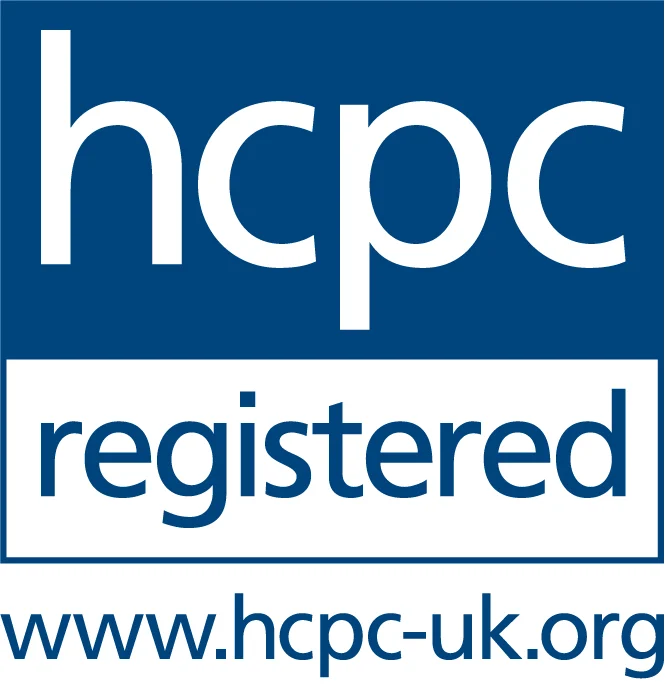What is Adult ADHD (Attention Deficit Hyperactivity Disorder)? How common is Adult ADHD? What causes Adult ADHD? What are the symptoms of Adult ADHD? How is Adult ADHD diagnosed? Related conditions and treatment.
Read PostWhat is childhood ADHD?
Attention Deficit Hyperactivity Disorder (ADHD) is one of the most common neurodevelopmental conditions that affects children and young people. It impacts the parts of the brain involved in attention, self-control, and the ability to sit still. Whilst all children may struggle with these things from time to time, children with ADHD experience them more often and more intensely, making it harder for them to succeed at home, school, and in their social lives. ADHD comes under the umbrella term of ‘neurodiversity’.
How common is childhood ADHD?
In the UK, an estimated 3-5% of children are affected by ADHD, with boys being diagnosed at a higher rate than girls (about 3:1). ADHD can manifest differently in girls and boys, with girls often presenting with more inattentive symptoms, while boys are more likely to exhibit hyperactive and impulsive behaviours, leading to girls' ADHD being underdiagnosed.
While the core symptoms of ADHD are similar worldwide, how ADHD manifests and is perceived can vary across cultures and age groups, influencing diagnosis and treatment approaches. Globally, there has been an increase in ADHD diagnosis in recent years, potentially due to increased awareness and recognition, as well as more people seeking an assessment. Critics have suggested that clinicians are over-diagnosing, or lowering the diagnostic threshold, although many clinicians disagree.
What causes childhood ADHD?
Although the cause of childhood ADHD is unknown, research suggests that there is a complex combination of genetic and environmental factors that may play a role, including: brain differences, family history, and potential prenatal exposures.
Genetic factors:
- ADHD often runs in families, indicating a strong genetic component.
- Children with ADHD are more likely to have parents or so brings with the condition.
- Researchers are studying specific genes that might be associates with ADHD risk.
Brain differences:
- Studies show differences in brain structure and function in individuals with ADHD, particularly in areas related to attention, focus, and impulse control.
- Some research suggests that children with ADHD may have lower levels of certain brain chemicals (neurotransmitters) that are important for these functions.
Environmental factors:
- Prenatal exposures, like smoking or alcohol or drug use during pregnancy can increase the risk of ADHD in the child.
- Exposure to environmental toxins (like lead) during pregnancy or early childhood may also play a role.
- Psychosocial adversity, is sometimes known as ACEs (Adverse Childhood Events). ACEs include: physical, sexual, and emotional abuse; physical and emotional neglect; and five household dysfunctions (parental separation/divorce, household physical violence, household substance abuse, household mental illness, incarcerated household member). These are all factors associated with ADHD.
ADHD is not caused by bad parenting, too much screen time, or too much sugar, although these factors will not help children who struggle with inattentiveness, hyperactivity or impulsivity.
What are the symptoms of childhood ADHD?
The symptoms of ADHD typically appear before the age of six, and are usually noticeable in different settings - at home, at school, and in social situations. ADHD symptoms are grouped into two categories:
Inattentiveness:
Children who struggle with inattentiveness often find it difficult to focus and stay on task. Signs include:
- Having a short attention span and being easily distracted
- Making careless mistakes in schoolwork
- Appearing forgetful or frequently losing things
- Struggling to organise or managing time effectively.
Hyperactivity and impulsiveness:
This includes behaviours that may seem restless or impulsive. Signs include:
- Inability to sit still, especially in quiet environments
- Fidgeting or excessive movement
- Excessive talking or interrupting conversations
- Little or no sense of danger
- Acting without thinking.
How is childhood ADHD diagnosed?
ADHD can only be diagnosed in the UK by a suitably qualified clinician, such as a Specialist Psychiatrist, Clinical Psychologist, Paediatrician, or Specialist ADHD Mental Health Nurse. They must all adhere to the NICE Guidance around how to make a diagnosis, and use approved assessment tools, diagnosis criteria (DSM-5 or ICD-11), alongside clinical observations and interviews. An NHS-compliant and comprehensive assessment comprises:
- Gathering information from parents and teachers about your child's behaviour in different settings.
- Health checks to rule out other potential causes for the symptoms.
- Standardised screening tools and questionnaires to assess ADHD symptoms.
- Observations of the child, sometimes at school, home and in a clinical setting.
A diagnosis of ADHD is made when the symptoms are persistent, appear in more than one setting, and significantly affect daily life.
Related conditions
ADHD can sometimes occur alongside other challenges - clinicians call this ‘comorbidity’ (this does not mean anything fatal!). Some related conditions include:
- Anxiety Disorders - studies suggest that 30-50% of children with ADHD also have an Anxiety Disorder.
- Oppositional Defiant Disorder (ODD) - studies suggest that 40% of children with ADHD also have (ODD).
- Learning Difficulties, e,g, Dyslexia and Dyscalculia - studies suggest that 60% of children with ADHD also have a Learning Difficulty.
- Autism Spectrum Disorder (ASD) - studies suggest that 50-70% of children with ADHD also have ASD.
How is ADHD treated?
With the right support, children with ADHD can thrive. In the UK, ADHD is often treated with a combination of medication, psychological therapy, parent coaching, school support, and tailored approaches. These are sometimes called ‘strength-based’ approaches, as they work with your child's strengths, rather than their challenges.
Medication:
Stimulant medications are sometimes prescribed by a Psychiatrist to help children focus better and control impulses.
Psychological therapy:
Therapists work with children to develop better emotional regulation, social skills, and coping strategies, using techniques from Cognitive Behaviour Therapy (CBT).
Parent coaching:
Parents can learn specific strategies to support their child, encourage positive behaviour, handle challenging situations effectively, and create a supportive home environment.
School support:
In the UK, children and young people may benefit from an Education, Health and Care Plan (EHCP). An EHCP is a legal document and sets out a child or young person's special educational needs, the support they need, and what they'd like to achieve. It covers birth to 25 years (if a young person stays in education). Clinicians often with the school to implement strategies that support the child's learning and behaviour.
Tailored approaches:
A structured and organised environment can help children with ADHD stay focussed and reduce distractions. Having a predictable structured routine can help children with ADHD manage their time and stay on track. Using positive reinforcement and incentive schemes, such as rewards for positive behaviour, can help motivate children.
It is important to note that about 60% of children with ADHD continue to experience full ADHD symptoms into adulthood.
At Equilibrium Practice, we offer a 3 Step Online ADHD Assessment Process for children (5-17), and tailored support for families. Click here for more information.
If you think that your child requires an assessment of ADHD, contact us to arrange a consultation to discuss your requirements further.
Written by Harriet Perring (Assistant Psychologist), under the clinical supervision of Dr Lorna Stewart (Clinical Director, Consultant Clinical Psychologist).
Disclaimer: All blog content is for information only and is not mental health treatment.
Other Posts
Why isn't 'Asperger's Syndrome' a diagnosis anymore? What do we call 'Aspergers' Syndrome' now? What if I had a diagnosis of Asperger's Syndrome before 2013?
Read PostWhat is Autism Spectrum Disorder (ASD)? What is a neurodiversity? How do I know if I need an assessment? What's involved in an assessment? How can a diagnosis help?
Read PostWhat is Cognitive Behaviour Therapy (CBT)? How does CBT work? How do I know if CBT is right for me? What happens during CBT?
Read PostWhat is Acceptance and Commitment Therapy (ACT)? How are CBT and ACT different from each other? What happens in ACT?
Read PostWhat is STAIR Therapy? What are the goals of STAIR?
Read PostWhat is anxiety? What are the symptoms of anxiety? What are the different types of anxiety disorders?
Read PostWhat is Dental Anxiety, or Dentophobia? What are the symptoms? What are the causes? What is the overlap between Dentophobia and Blood-Injury-Injection Phobia? What is the treatment?
Read Post




